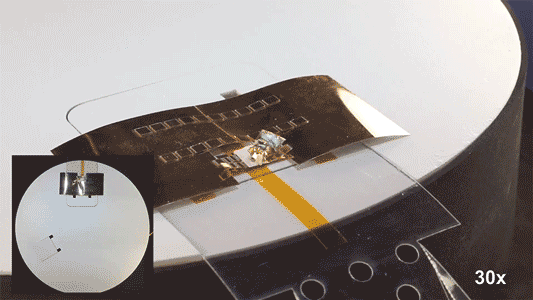MI weekly selection #252
MI weekly selection #252

Self-folding exoskeletons can help robots adapt for different missions
Origami-like heat-activated exoskeletons can help robots adapt for varied missions by giving them the ability to roll, glide, walk and sail.
Japan’s Akatsuki spacecraft collecting Venus climate data after rocky start
After a difficult start, Japan has been collecting data about the harsh climate of Venus. The Akatsuki spacecraft was unable to get into orbit around the planet in 2010, but it lingered nearby until late 2015, when a second attempt worked.
Japanese marine species reach US Pacific Coast via 2011 tsunami debris
A number of Japanese marine species, including mussels and starfish, have been found on the US Pacific Coast, carried there on plastic or fiberglass debris by the tsunami that followed the massive earthquake in Japan in 2011. Nearly 300 species have been found so far, and researchers believe it’s likely even more will be found.
A plan to curb antibiotic resistance
A team of scientists has come up with a plan to reduce antibiotic use in livestock by 80% in an effort to curb antibiotic resistance. The plan calls for countries to cap their livestock antibiotic use to the current global average, encourage people to eat fewer animal products and tax veterinary antibiotics.
Pigeons may be better multitaskers than humans
Pigeons can juggle tasks just as fast, and sometimes faster, than humans. Researchers say the birds’ neurons are closer together than human neurons, which may allow for faster relaying of electrical signals.